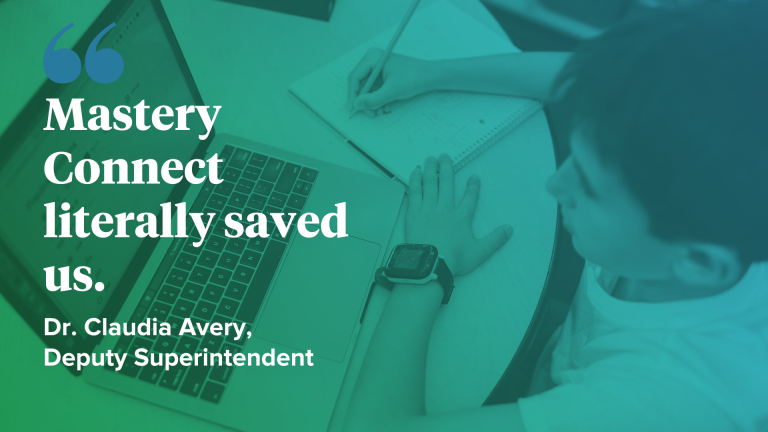You administer a benchmark assessment and review the data. You pivot to cover potential gaps and support small groups and individual students. But then the state test data comes in… and the results don’t match. Months of trust in those benchmarks erode, and ultimately, students end up behind where they could have been. So, what do you do when your benchmark doesn’t predict what it promises? Let’s take a look at why research-proven benchmarks matter, what you lose when you trust unreliable data, and how to get accurate data so your educators can make informed decisions to support every student.
What you lose with inaccurate benchmarks
Misaligned benchmarks can mislead even the most attentive educators. And when you trust faulty data, you end up re-teaching the wrong material, misgrouping students, and losing instructional time. Educators and districts make high-stakes decisions based on what should be reliable data. And yet many benchmark assessments lack rigorous backing, misrepresent predictive power, and lead skilled educators astray.
What makes a benchmark research-backed?
Research consistently shows that assessments are most useful when they reflect what students have actually been taught, not simply reviewing what they’ll eventually need to know (Black & Wiliam, 1998; Wilson, 2018). And that’s because learning is developmental. When assessments align with the curriculum's pacing and progression, teachers can make more actionable decisions about instruction (Heritage, 2018).
Overly broad assessments, on the other hand, can leave teachers guessing. Was the student confused? Were they never actually taught the material? Did we not reteach the right concepts? Worse, this kind of assessment incentivizes “teaching to the test” instead of deep learning. That’s why research-backed benchmark assessments, like those in Mastery Connect, are carefully aligned with curriculum and state standards, and field-tested to reliably predict performance.
If a benchmark tool only answers "What do students know?" it doesn’t provide the whole picture that educators need to make the best decisions for their students. The best benchmark tool will also answer "What were students taught?" and "What’s next?" to look at the past, present, and future, creating a cohesive experience between assessments and instruction.
Confidence in action: Mastery Predictive Assessments
Curriculum-aligned and tested to correlate with end-of-year performance, Mastery Predictive Assessments go beyond offering simple scores to trustworthy direction for teachers to take. But how can you be sure?
Because we’ve done the homework.
In 2022–23 and 2023–24, we ran predictive validity studies with over 161,000 students across eight districts in four states and found strong correlations between our benchmarks and state test results. A clear pattern emerged in separate efficacy studies with nearly 75,000 students: the more teachers used Mastery assessments (predictive, formative, or even individual items), the more student scores improved on state tests. These students came from urban, suburban, and rural districts, ranging from 500 to 78,000 learners. So no matter the setting, building assessments on solid research delivers results you can trust and work from.
Leaning on unreliable data frustrated a district in Mississippi. But they regained trust in assessment data and increased student achievement with data-driven instruction so much with Mastery Connect and the Mastery Predictive Assessments that they achieved their highest accountability mark in history after just three years. Because teachers can trust the data, the time spent on benchmark assessments is well spent, and students are being met and supported like never before.
Choose certainty, not a best guess
Now is the time to ask: Is our benchmark data research-backed? Or based on hunches?
With Mastery Predictive Assessments, administrators can be more confident that benchmarks are research-backed, teachers can be more confident in their next steps, and students can achieve more with the targeted support from valid data.
Know what certainty over guesswork looks like by diving deeper into benchmark assessments with our guide, Choosing Effective Benchmark Assessments.



